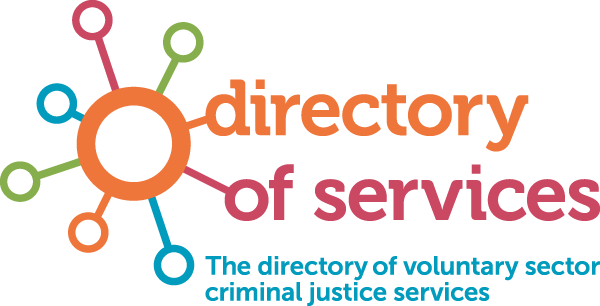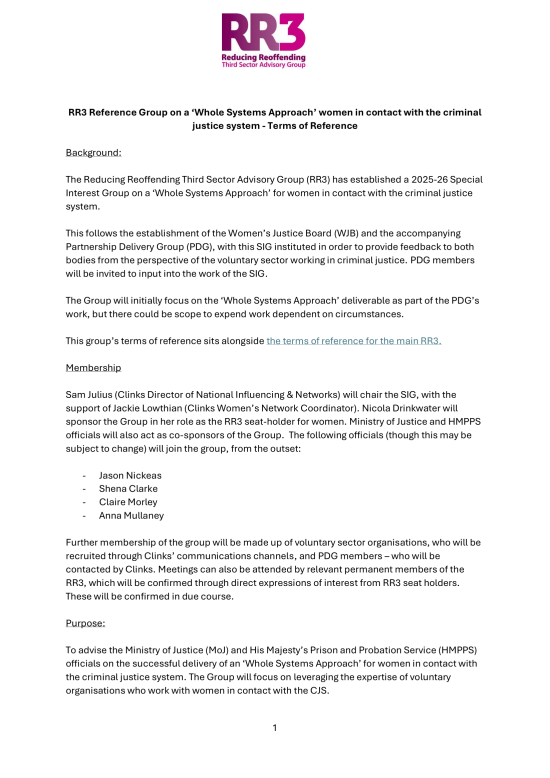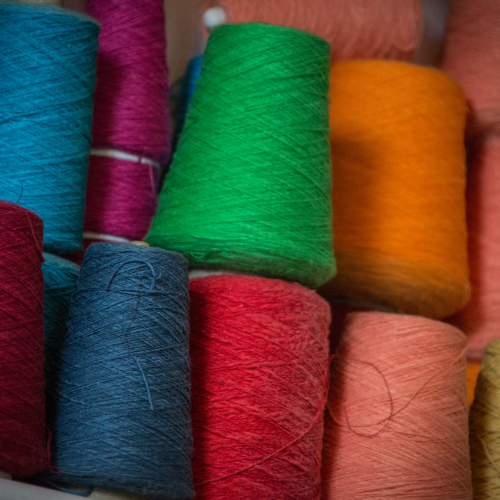Overview
Women represent a small minority in the criminal justice system, comprising less than 5% of the prison population and 15% of those serving a community sentence. In a system designed primarily for the large male population, women’s needs are often overlooked.
Women in the CJS often have different and more complex needs than men. Higher numbers of women (53%) than men (27%) experienced abuse as children. Far more women than men are primary carers for children, with significant consequences for the children of those who go to prison, as well as for the mothers themselves. 49% of women in prison suffer from both anxiety and depression, as compared to 23% of men.
The Corston Report (2007) called for a radical shift in how the CJS treats women. However, despite some policy changes, many of the issues highlighted by Corston, such as the harmful impact of prison on women and the ineffectiveness of short sentences, persist. The Ministry of Justice’s 2018 Female Offender Strategy acknowledged these issues and aimed to reduce the use of short sentences. This ambition has yet to be achieved, despite the publication In January 2023 of a Delivery Plan intended to implement the strategy over the 2022-2025 period.
Clinks members provide gender-specific, specialist services for women often from community women’s centres that off a ‘one-stop-shop’ holistic approach using trauma-informed practice to achieve results. Clinks supports these organisations and is committed to promoting specialist provision and strengthening the wider women’s sector. We believe that robust women-only, community-based women’s services are the best way to make a real difference to the lives of women at risk of entering, or those already in, the criminal justice system.
Our work
Keeping the voluntary sector informed
We are committed to keeping voluntary sector organisations informed by regularly sharing criminal justice updates and commissioning news through sector wide mailings and newsletters. These communications ensure that our members and others in the sector are up to date with the latest developments and opportunities.
To help our Women’s Network members stay connected and informed, we provide additional updates through including quarterly network forums, quarterly ebulletins, and regularly email updates. These communications cover policy developments, opportunities for commissioning and grant funding, training sessions, upcoming events, valuable resources, publications, and campaigns.
Enhancing sustainability
Our national Women’s Network Coordinator works directly with Network members to understand their sustainability challenges and gather insights that we share in commissioning forums. We connect members with relevant grant funding opportunities and support them to engage with public procurement processes, providing sharing information on competitive tendering and commissioned contracts where appropriate. We feed back our members’ experiences to commissioners to help improve commissioning processes.
Training and development
Throughout the year, Clinks holds a full programme of training events designed to support the sector develop the essential skills needed to navigate the criminal justice landscape. We also hold regional and thematic criminal justice forum events to support information sharing and provide networking opportunities for organisations and individuals.
We also offer a quarterly training workshop ‘Why Gender Matters in the Criminal Justice System’, aimed at frontline staff or volunteers. This workshop provides a deeper understanding of women’s gendered experience of the criminal justice system and insight into ‘a whole system approach’ for women. Visit the events and training page for more information.
Listening and acting on the experiences and views of the voluntary sector
We actively gather intelligence from our Women’s Network members on emerging topics and key policy developments through:
- Email call-outs for information
- Small group discussions at Network forums
- Specific focus groups
The information gathered is then collated and shared to inform our representative with work officials in the Ministry of Justice and HMPPS and other stakeholders, ensuring that the voices and insights of our members are considered in policy decisions.
Promoting the expertise of the voluntary sector
Clinks represents the voluntary sector on a variety of strategic boards, including multi-agency ‘whole system approach’ groups operating at regional level, aimed at fostering a more coordinated, integrated and ‘joined up approach’ for women in contact with the criminal justice system. Our involvement ensures the sector’s expertise is considered in decision making processes, and that proven and innovative approaches to improving outcomes for women are promoted.
Championing the voluntary sector at the highest levels
We play an important role in championing the women’s specialist voluntary sector at the highest levels through the Women’s Seat on the Reducing Reoffending Third Sector Advisory Group (RR3). Chaired by Clinks, this influential group of senior voluntary sector leaders amplifies the voices, concerns, and vital work of organisations supporting women in contact with the criminal justice system.
Facilitating networks and collaboration
Clinks Women's Network is one of several specialist networks that we convene, creating spaces for collaboration, knowledge sharing, and the promotion of good practice. These networks bring together the collective expertise of the sector to strengthen services and enhance outcomes for people in contact with the criminal justice system.
We recently facilitated a network meeting with David Gauke, Chair of the Independent Sentencing Review. This was a standalone session for members of Clinks' Women’s Network to hear directly from Mr. Gauke, who took questions and presented findings from the Review with a particular focus on women.
Watch the video recording below:
Get involved
Clinks Women's Network
The Clinks Women’s Network connects our members that provide specialist services designed for women. It comprises over 300 individuals from around 160 organisations working in England and Wales.
Our Women’s Network Coordinator liaises regularly with Network members to share information, provide advice, and offer support.
In partnership with Agenda, the Alliance for women and girls at risk, we host quarterly Women’s Networking forums. They are designed to strengthen partnership working and provide a platform to address opportunities or challenges your organisation may be facing. The Women's Seat on the Reducing Reoffending Third Sector Advisory Group (RR3) attends the forum to gather feedback about key issues raised by the women’s sector to reflect these to national government at RR3 meetings. Discover details of upcoming events here.
Why join the Women's Network?
Get involved for opportunities to:
- Connect with other organisations offering women-specific services
- Access valuable information, advice, training, and support to develop and run women-specific services
- Receive policy updates from Clinks and Agenda
- Hear from expert speakers on topics relevant to women and criminal justice
- Influence policy and procedures within the criminal justice system
- Showcase your work, share good practice, and learn from others
- Stay informed with regular updates on issues relevant to women and criminal justice via mailings and our quarterly Women’s Network ebulletin
Join the Women’s Network
The Network is free and open to current Clinks members that work or volunteer in a women-specific voluntary organisation that provides services for women, or those working with both men and women but currently deliver fully established services designed specifically for and open only to women.
Registration is required for attendance to our quarterly Women’s Network forum events. To register or suggest content ideas please contact our Women’s Network Coordinator.
Join here









